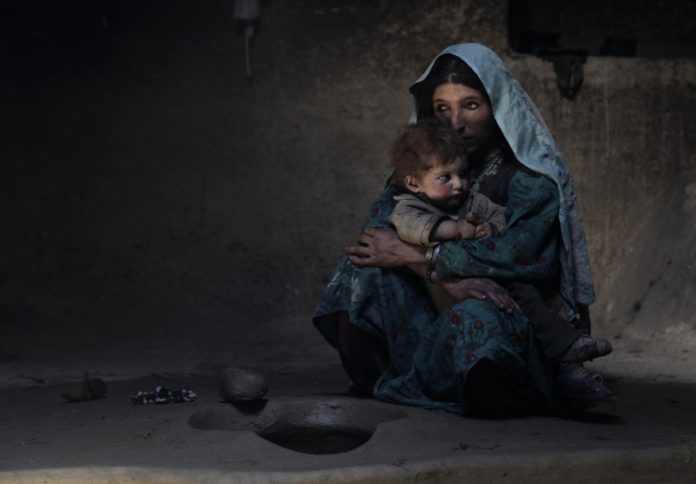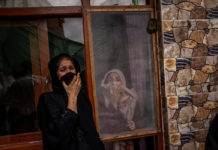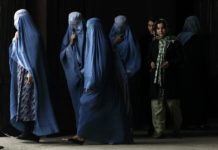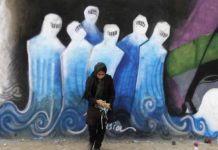
(The daily Jeddojehad , a leftwing online Urdu-language paper is posting reports from Kabul. Filed by Yasmeen Afghan , these reports depict picture from inside Kabul and cover what is often ignored in the mainstream.
While some of the world leaders are trying to negotiate with the Taliban and trying to impose the narrative of ‘reformed or good Taliban’, the Afghans on the other hand are losing on all fronts. They are trying to survive despite an uncertain future.
One of the challenges these days is that Afghans are slowly descending into starvation not only in Kabul but elsewhere in the country. Farid (not his real name), a student and shopkeeper in one of the villages of Nangarhar province said, “Things changed so quickly. There is almost no stock in the market and also people don’t have the money to buy things.”
A resident of Kabul said, “We don’t have money to buy anything. The food prices are very high. I don’t know how long my family will be able to survive.” Modaser Islami, a freelancer in Kabul, tweeted that fruit sellers have told him, “Few people visit our shops now because they are unable to buy stuff.”
The collapse of Kabul resulted in closure of all banks. People had stormed the banks to withdraw cash, but all was in vain as there was none in the ATMs. As a result, many Kabul residents have run out of hard currency, and this has made it difficult for people to provide for their daily expenses.
Ata (not his real name) a Kabul resident stated, “ I just have 2000 Afghanis in my pockets. I shudder at the thought of an emergency at home.” Residents of Kabul are calling other provinces even for mobile top-up cards and fear is growing in the intellectual circles that if they run out of these cards, soon then they will not have internet and thus won’t not be able to share about the chaotic scenes in Afghanistan.
Taimour, a resident of Kunduz stated, “We are slowly losing the contact with outside world as we cannot find top-up cards and thus will have no access to share the realities of Taliban with the rest of the world.”
Many government employees have not been paid as the collapse was very sudden . People have cited concerns that they are not able to pay their rents, or buy petrol and fuel. Life in Kabul and other major cities will come to a standstill if the banks do not open soon, and this will result in another crisis.
A Kabul resident who is a government employee and didn’t want to reveal his identity stated, “I have not been paid. Everything is skyrocketing. We are living in miserable conditions.”A female teacher in Mazar stated, “our salaries were already not sufficient but now not being paid has burdened our lives. I have a young son, who has a heart problem and must buy medicine for him but tell me how?”
Many Afghans who were contacted are living in dire conditions and need help. A United Nations assessment of the food security and nutrition situation in Afghanistan finds one in three Afghans face acute food insecurity. That means an estimated 14 million people in the war-torn country are barely able to meet their daily minimum food needs.
Thoryalai in Kabul stated, “My neighbor asked for 1000 Afghanis but I had to decline as I have little cash and with the food prices going higher with each day, I feel bad that I have to think about my family before I think about others.” Shareen, who has recently arrived from Farah province stated, “The ticket prices were very high when we were coming. My brothers live in Kabul, and I had to come here as overall food prices are high. I thought maybe Kabul would be better, but things are dire here too. Only Allah can save us now.
First posted: 25 August 2021.







